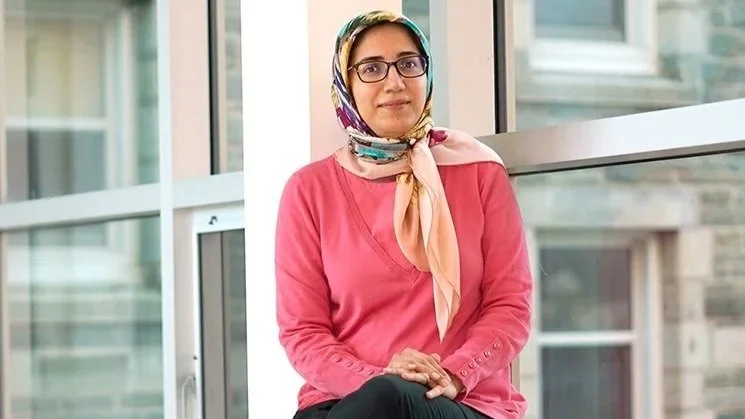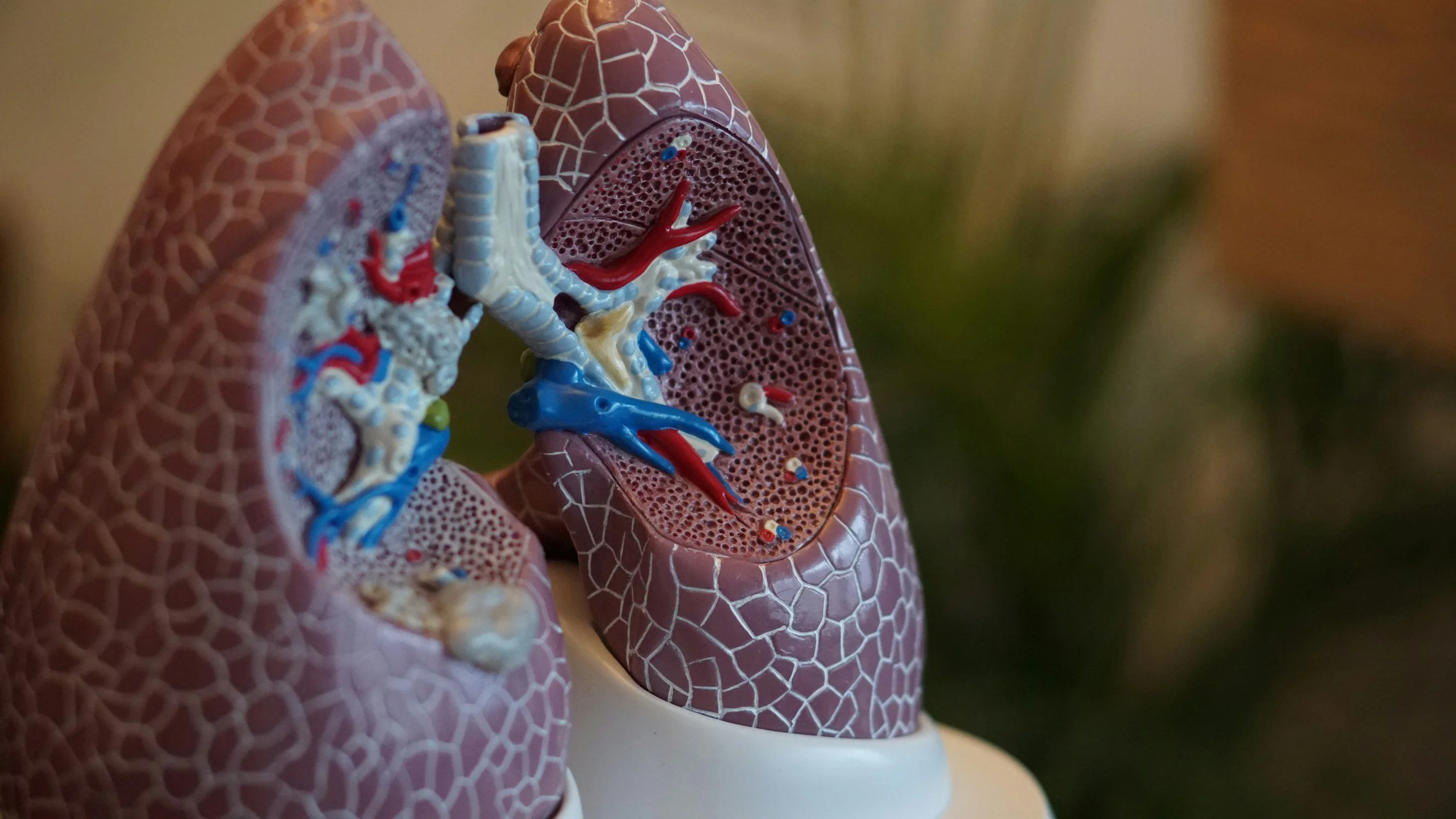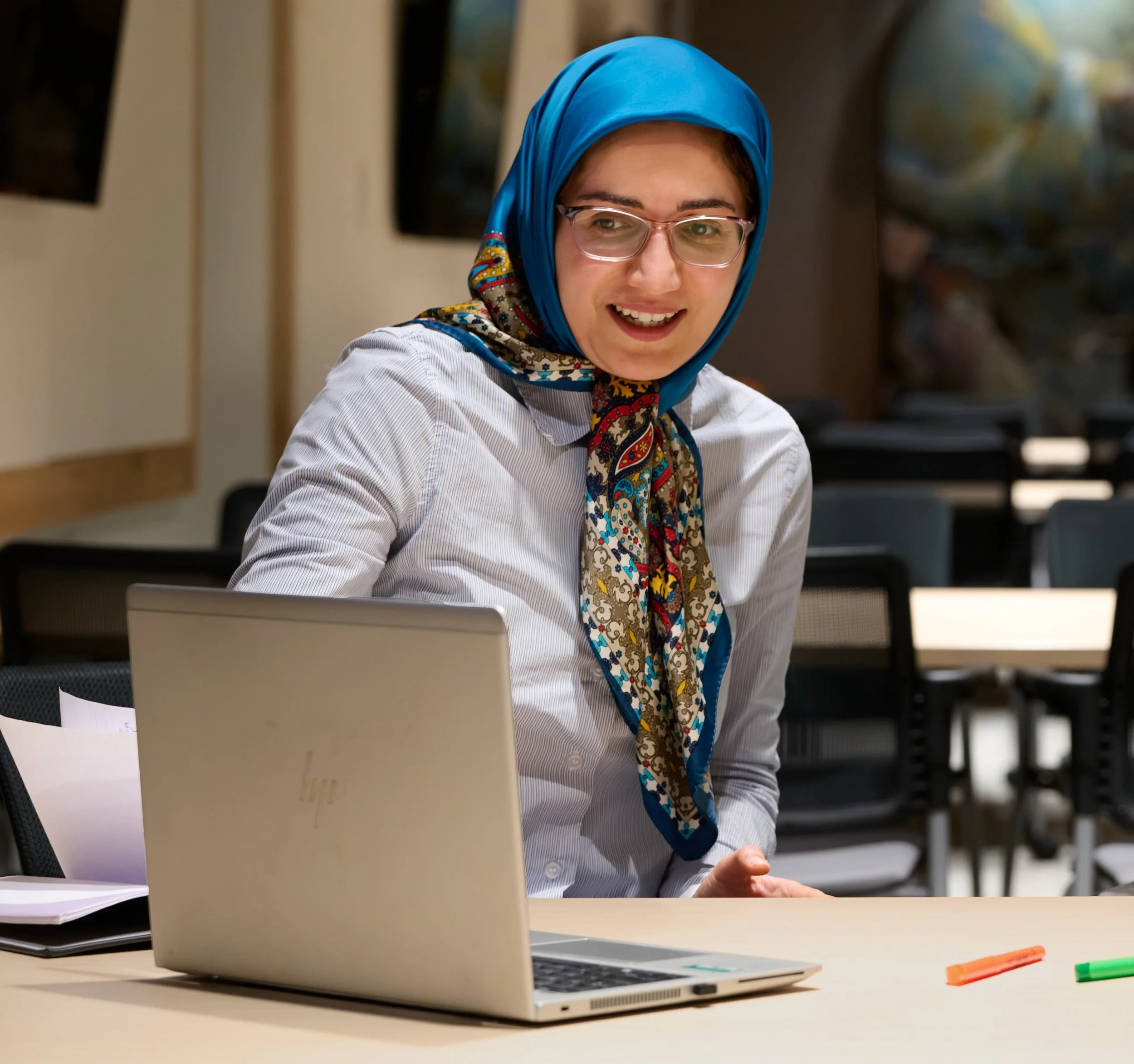Dr. Somayeh Kafaie, Assistant Professor in Mathematics and Computing Science at Saint Mary’s University
Behind every lung cancer diagnosis is a family holding its breath, waiting for scans, for plans, for decisions, for the next step. What if advanced technology could help deliver those answers more quickly and tailored to each patient? At Saint Mary’s University, that possibility is becoming clearer.
Data science meets patient need
When Dr. Somayeh Kafaie speaks about her research, her voice softens. “For me, my research is about hope and progress,” she says. “It’s about making sure every patient receives the right treatment at the right time.”
An assistant professor in Mathematics and Computing Science at Saint Mary’s University, Dr. Kafaie leads the GraphML Lab, a space where data science meets human need. Supported by a Legacy Research Grant from the Lung Association of Nova Scotia & Prince Edward Island (LungNSPEI), her project applies machine learning to one of the most complex challenges in modern medicine: how to make radiation treatment for lung cancer faster, safer and more personalized.
Dr. Kafaie and her team are working to help physicians improve radiation treatment plans for lung cancer patients
The work, titled “Machine Learning for Optimized Lung SBRT Dose Prescription”, explores whether artificial intelligence can help doctors predict the best radiation treatment plan for each patient based on their anatomy, medical history and the unique position of their tumour.
In collaboration with Nova Scotia Health and Cape Breton University, Dr. Kafaie and her team are using data-driven models to help physicians design more precise, individualized care plans, reducing delays and minimizing risk to surrounding organs.
“Right now, creating a radiation treatment plan can take several days,” she explains. “It requires multiple rounds of adjustment by medical teams before it’s finalized. We’re exploring how machine learning can act as an intelligent assistant; not replacing doctors but helping them predict the right settings more efficiently and with greater confidence.”
Improving care where it’s needed most
Her path to this work was shaped early by her father, whose quiet encouragement to “do something meaningful” stayed with her. “He dreamed of me working at a university,” she recalls. Today, that same drive to teach, learn and help others anchors her research, utilizing knowledge to improve care where it is needed most.
Dr. Kafaie’s passion for healthcare innovation took hold during her postdoctoral studies, when she began to see how data could drive real-world impact. “You can actually see how your work affects people,” she says. “That’s what keeps me going.”
She grew up far from major hospitals and research centres, in a community where advanced treatment often meant travelling long distances. “Even here, in Nova Scotia, people sometimes have to travel hours or even to other provinces for specialized care,” she reflects. “If we can bring technology and expertise closer to smaller or rural communities, the impact will be enormous.”
It’s a sentiment that resonates far beyond academic walls. Lung cancer remains one of the most aggressive and least forgiving cancers, touching almost every family in some way. For patients and their loved ones, waiting for treatment can be excruciating. A technology that shortens that wait time while improving accuracy could change outcomes and lives.
Expanding the impact of innovation
Dr. Kafaie’s collaboration with Dr. Mike Sattarivand at Nova Scotia Health began with a simple question: Can we make lung cancer treatment planning faster and more precise? That question has since evolved into a cross-disciplinary partnership combining medical expertise with advanced analytics.
““This is what science is. Tiny steps built on the shoulders of others, each of us adding one small improvement that, together, makes a big difference.””
At Saint Mary’s, the project also bridges disciplines and communities. Students in Dr. Kafaie’s lab gain first-hand experience in using data science to solve real-world problems, while the collaboration with Nova Scotia Health strengthens the connection between academic research and patient-centred innovation. It’s a model of what SMU does best: combining human insight with technical excellence to create tangible public value.
“SMU provides the academic foundation in data science and machine learning that makes this research possible,” says Dr. Kafaie. “Our students work closely with clinical experts, attending our lab meetings and contributing to the computational models. It’s truly a bridge between the university and the health-care system.”
Although the project currently focuses on lung cancer, its potential reach extends far beyond. The same algorithms could one day inform treatment planning for other cancers, or even other diseases where personalized care is critical.
“This is just the beginning,” she says. “AI can be a support system for doctors across many areas of medicine.”
Still, for all the science and computation, what lingers after speaking with Dr. Kafaie is the humanity. She speaks of patients she has never met with the tenderness of someone who has known loss, and of research as a quiet act of care. “We live in a world where many people feel alone,” she says. “But if we each do a little bit, in our own way, we can make things better. That’s what I want my work to say.”
For Saint Mary’s University, this project is one of many that show how innovation and compassion can move hand in hand. In labs like Dr. Kafaie’s, data becomes more than numbers. It becomes connection, progress and, most importantly, hope.



